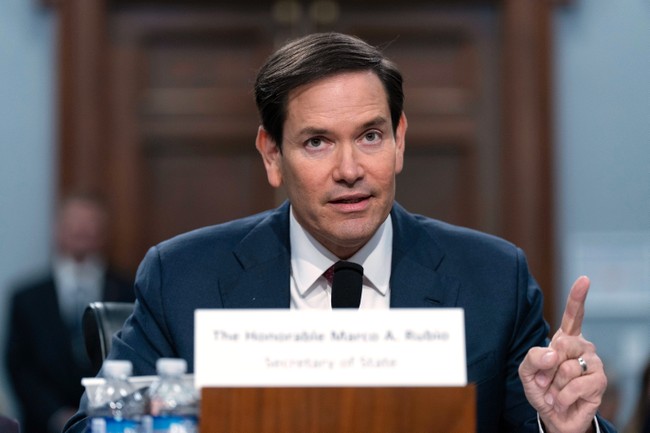
There’s more than one way to skin the cat, whether it be an Academia cat, a trade cat, or a nat-sec cat. And this method will be difficult to challenge in court.
Late yesterday, Marco Rubio announced that the State Department would go for the feline-defurring hat trick. The State Department will launch a review of all student-visa application and grants for students from China and will “aggressively revoke” — a quote — any connected to the Chinese Communist Party or studying in “critical fields.” The move may provide Donald Trump some leverage in trade talks after a loss yesterday at the Court of International Trade, but that hardly appears to be Rubio’s only goal:
Last year, House Republicans issued a report warning that hundreds of millions of dollars in defense funding was going to research partnerships linked to the Chinese government, providing “back-door access to the very foreign adversary nation whose aggression these capabilities are necessary to protect against.”
The Department of Homeland Security raised similar issues in a letter barring international students at Harvard University last week. Secretary Kristi Noem accused Harvard of “coordinating with the Chinese Communist Party,” citing research collaborations with Chinese scholars. It also accused Harvard of training members of the Xinjiang Production and Construction Corps, a Chinese paramilitary group.
This is likely the real issue driving Rubio. The US has spent the last quarter-century selling China the rope by which they plan to hang us, and that’s not just true of the government. In fact, it’s not just true of Academia either, even in combination with government. American capital flowed into China to take short-term advantage of cheap labor and a vast market, and ended up building the infrastructure for the CCPs oppression of its people, particularly in the tech area. As enraging as the Big Brother/Big Tech Censorship Complex in America was over the past five years, we may have deserved a taste of what we built to oppress China’s captive citizenry.
Hopefully those days are over, and it appears that the Trump administration is orienting itself to ensure that. The actions against China appear to be a whole-of-government strategy, including trade, diplomacy, and now access to vital intellectual infrastructure. Rubio made clear in his explanation that the review intends to punish nations that censor Americans or impose censorship on American debate:
“It is unacceptable for foreign officials to issue or threaten arrest warrants on U.S. citizens or U.S. residents for social media posts on American platforms while physically present on U.S. soil,” he said in a statement.
He added that “it is similarly unacceptable for foreign officials to demand that American tech platforms adopt global content moderation policies or engage in censorship activity that reaches beyond their authority and into the United States.”
Hmmmm. That same warning can and should apply to others, primarily the European Union. Did Rubio intend that as a warning shot across the EU’s bow? I believe in many things, but coincidence is not one of them.
This does seem primarily aimed outward at hostile regimes, and perhaps annoying allies as well. However, this has dire implications for Academia, where student visas are now temporarily suspended in toto anyway. The New York Times explains why:
A report published last year by the State Department and the Institute of International Education, a nonprofit group, said that China had the second-largest share of the more than 1.1 million international students who enrolled in American higher education institutions in the 2023-24 term. More than 277,000 students came from China, behind India, with its more than 331,000 students. The number of Chinese students had dropped 4 percent from the previous academic year, while the number from India had surged by 23 percent.
That has serious financial implications for universities and colleges that rely on the lucrative SEVP market. Losing 20% of the potential revenue stream — even after the State Department begins issuing student visas again — will force those schools to either recruit from other foreign countries or open their doors to more Americans. In either case, they will have to trim back their expenses or raise tuitions, and the likelihood of Trump action on the student-loan program makes the latter a risky option. Look for belt-tightening to hit Academia soon, especially at the Poison Ivies this will hit hardest.











